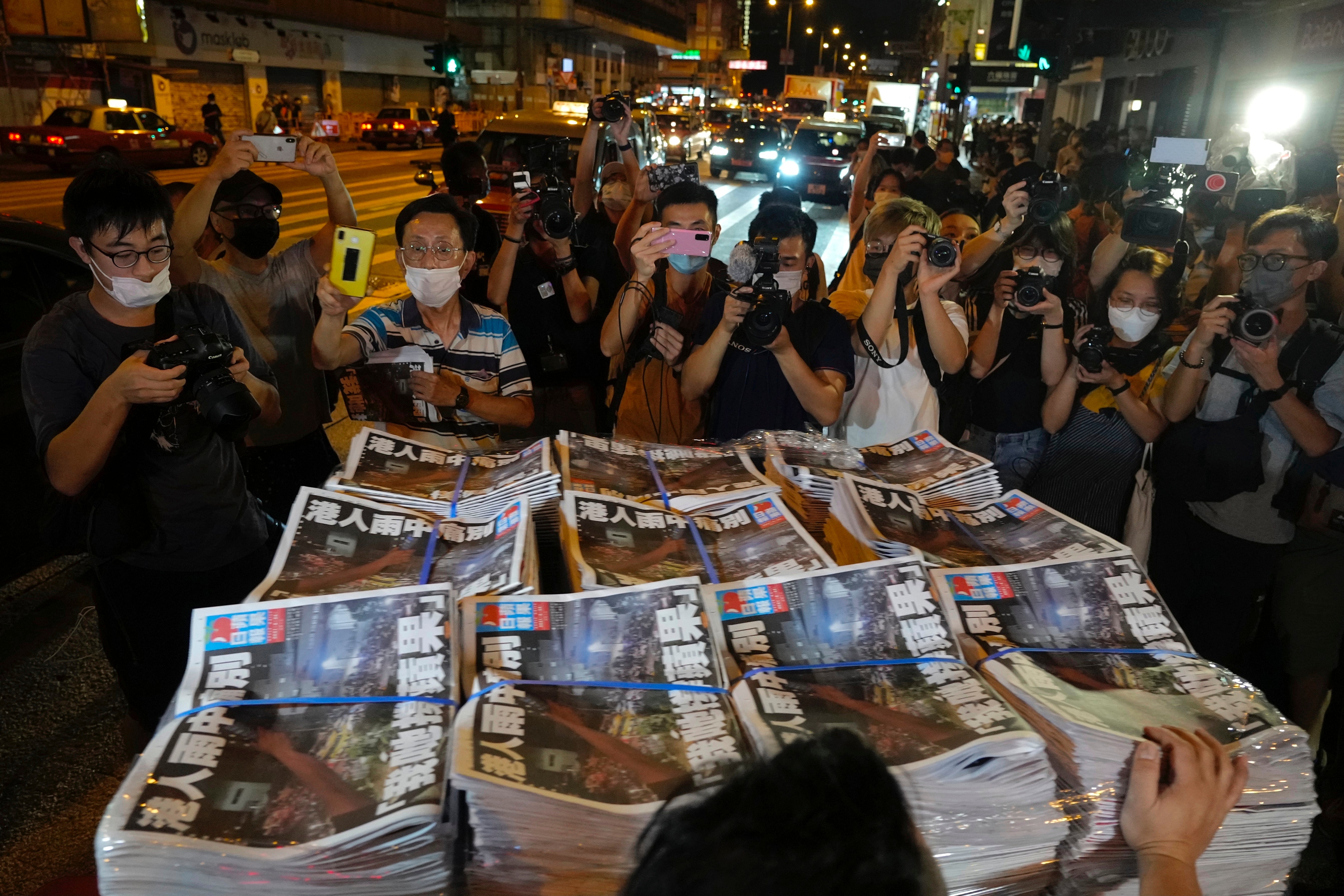Hong Kong’s Apple Daily deletes social media accounts, but will live on free of censors in blockchain
Taiwan denounced Apple Daily’s closure, calling it ‘political oppression’

With the final edition of Hong Kong’s pro-democracy newspapers sold out as people bid a “painful farewell,” its websites, applications, and social media accounts were disabled from midnight on Thursday.
The URL of the website flashed “goodbye” and the text on the website thanked readers for supporting Apple News and Next Magazine.
“We are now seeking legal advice and will notify subscribers again if we have the latest news,” an intimation on their now-defunct website reads.
But Hong Kong’s activists scrambled to back up the articles by the tabloid on blockchain platforms, which allows to record or store information in a way that it becomes difficult to change or hack it.
More than 4,000 newspaper articles had been uploaded by Thursday, reported Reuters.
The efforts to store the articles of the most popular tabloid in Hong Kong that has been a vocal critic of the Chinese state came after the 26-year-old newspaper announced its shutdown on Wednesday. The newspaper was accused of breaching new national security law and its company-related assets were frozen.
The shutdown following raids at its office is being seen as a blow to the pro-democracy movement in the former British colony and evidence of censorship in media.
Meanwhile, Taiwan joined governments across the world in denouncing Beijing for the closure of Apple Daily on Thursday describing it as "political oppression," saying it “sounded the death knell for freedom of press.”
Taiwan’s China policy-making Mainland Affairs Council said: "This unfortunate incident has not only sounded the death knell for freedom of press, publication, and speech in Hong Kong, but has also allowed the international community to see for themselves the Communist Party regime’s totalitarianism and autocracy," it said on Thursday, reported Reuters.
Taipei, which Beijing claims to be its part, said “history will always record the ugly face of those in power suppressing freedom”.
Hong Kongers gave teary-eyed tribute to the paper as it published its last edition. People queued up outside its offices as the paper’s staff waved back at them amid chants of encouraging slogans.

A million copies of the last edition were a tribute to its readers with the headline: "Hong Kongers bid a painful farewell in the rain".
Beijing introduced the national security law in Hong Kong last year after pro-democracy protests swept the country. The controversial law which has seen almost 100 people arrested since enforces reduces the judicial autonomy of Hong Kong while allowing the government to punish protesters.
Hong Kong is a former British colony that was handed over to China in 1997 with the promise to retain its rights and freedoms for the next 50 years.
Join our commenting forum
Join thought-provoking conversations, follow other Independent readers and see their replies
Comments
Bookmark popover
Removed from bookmarks